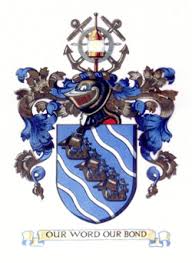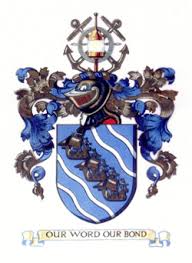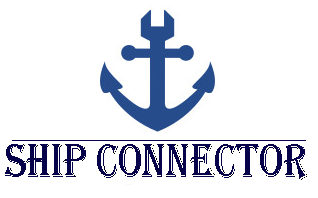
INSTITUTE OF CHARTERED SHIP BROKERS (ICS)

Contents
INSTITUTE OF CHARTERED SHIP BROKERS (ICS)
The Institute of Chartered Ship brokers, founded in 1911, is the Professional body that sets the highest standards of professional services to the shipping industry through the provision of an internationally recognized education program.
The institute believes it is essential that shipping professionals have sufficient knowledge of the law, insurance, economics, etc so that he/she can communicate with a specialist professional.
This result in less confusion, misunderstanding and hopefully less contractual risk to the company.
Perhaps it goes without saying that a maritime lawyer needs the understanding of the shipping industry to be able to place his/her work in context.
Advantage of studying for the ICS examination include
* Internationally accepted professional qualification
* Guarantee of a genuine understanding of shipping Business
* Proficiency in chosen specialist subjects
*Improved ability to analyse and assess information
*Greater confidence to communicate effectively worldwide on shipping business matters
QUALIFYING EXAMINATION : Provides a thorough understanding of shipping business
CAREER PROGRESSION :
Candidates
Members (MICS)
Fellows (FJCS) & thereby
A Charted Shipbroker
FOUNDATION DIPLOMA STRUCTURE
Principally intended for those new to the industry Candidates take two papers at the same set of examinations
No exemptions allowed
Group 1 Introduction to shipping
Group 2 1 option
QUALIFYING EXAMINATION STRUCTURE
Please note that all Qualifying Examination candidates must take shipping business in their first year
GROUP 1
(All subject required) – Introduction to shipping Legal principles in Shipping Business
Economics of sea transport and international trade
Compulsory in first year – Shipping Business
GROUP 2
Dry cargo chartering
Ship operations and management
Tanker chartering
Ship sale and purchase
Liner trades
Port agency
GROUP 3
Shipping law
Financial and management accounting
Multi-Modal transport and logistics
Maritime insurance
Candidates may select the following options in respect of GROUP 2 and 3
Option A: Two subject from group 2 and one from group 3
Option B: Three subject from group 2 and none from group 3
Option C :One subject from Group 2 and two from group 3
If this option is chosen only group 3 is exemptible the other group MUST be taken with this institute
Shipping business must be taken in the first year the remaining subject may be taken in any order but candidates must sit a minimum of three subjects at all their first attempt (Sitting means making a genuine effort to answer five questions in each paper) The qualifying examination must be completed within five years.
EXEMPTIONS:
Candidates with relevant professional or educational qualifications validated by this institute will be able to apply for exemptions, on a subject for subject basis, from all subjects except Shipping Business in Group 1 and the specialist subjects comprising Group 2
ENTRY REQUIREMENTS:
Candidates wishing to take either the institute’s Qualifying or Foundation Diploma examinations must first register with the institute as a student The examinations are held in April each year at specified centers worldwide (please see attached list) Please note that candidates wishing to sit elsewhere should contact the institutes London office no later than October 31st to see if this can be arranged and that supplementary charges may be payable
QUALIFYING EXAMINATIONS
Every applicant for registration as a student and subsequent entry to the Qualifying Examinations will be required to comply with one of the following conditions:-
a) Have gained passes in 2 subjects at GCE ‘A’ level or the equivalent outside the U.K education system
OR
b) Have completed one year’s employment in an organization, which has a bona fide connection with shipping business including serving at sea.
c) Have obtained the institute foundation diploma in shipping.
FOUNDATION EXAMINATIONS
Every applicant for registration as a Foundation Diploma student and subsequent entry to the Foundation Diploma examinations must be over 16 years of age
REGISTRATION
Application must complete and return their registration form and appropriate fee to the institute no later than the following dates of each examination year.
14th January for candidates at designated centers overseas and in the Republic of Ireland 14 February for candidates in the United Kingdom
Registrations received after these dates will Not be accepted for non-standard centers deadline is October 31st
Registration as a student does Not confer membership of the institute and students May Not use any initials after their names denoting that they are Registered students of the institute
FEES
Fees are payable for Registration and for Examination entry see the enclosed slip for current fees all fees must be paid in sterling except where arrangements have been made to pay these in local currency to your institute branch
ENTRY PROCEDURE
Candidates must complete and return the examination entry form together with the appropriate fee, to the institute not later than the following dates of each examination year.
21st January for candidates at centers overseas and in the Republic of Ireland 21st February for candidates in the United Kingdom
Candidates are advised in their own interest to submit their entry form well in advance of the closing date and to ensure that it is acknowledged .No allowance can be made for any special circumstances or for any error or omission by the candidates, by a parent or friend or by the postal authorities .Late entries will Not be accepted
THE FOLLOWING ARE COURSES STRUCTURE
GROUP 1
A .Introduction to shipping
B .Legal principles in shipping business
C .Economics of sea transport and international trade
D .Shipping business
GROUP 2
A .Dry cargo chartering
B .Ship operations and management
C .Tanker chartering
D .Ship sale and purchase
E .Liner trades
F .Port agency
GROUP 3
A .Shipping law
B .Financial and management accounting
C .Multi-modal transport and logistics
D .Marine insurance
GROUP 1
INTRODUCTION TO SHIPPING( INSTITUTE OF CHARTERED SHIP BROKERS (ICS ))
Its aim
1. To introduce students to the essentials of business practice
2. To ensure a basic knowledge and understanding of the elements of shipping business
3.To develop communication skills
Commercial Geography
International trade
Cargoes and trade routes
Ship types
Contracts of carriage
Law of carriage
Ship registration and classification
The practitioners in shipping business
Basic accounting
LEGAL PRINCIPLES IN SHIPPING BUSINESS( INSTITUTE OF CHARTERED SHIP BROKERS (ICS )
Its aim
1. Have a general understanding of the principles of the law relating to matters frequently encountered in shipping business
2. Develop the ability to exercise foresight in avoiding problems and to deal intelligently with them if they arise
3. Have sufficient knowledge of dispute resolution to be familiar with the procedures
General principles
Contract
Agency
Port
Law of carriage
General average
International conventions
ECONOMICS OF SEA TRANSPORT AND INTERNATIONAL TRADE( INSTITUTE OF CHARTERED SHIP BROKERS (ICS )
Its aim
1. To give a basic understanding of the economic theory of shipping and international trade
2. To develop analytical skills and relate theory to empirical evidence
3. To communicate effectively through the use of graphs and have an appreciation of statistical evidence.
Basic economic concepts
The demand for shipping
The supply of shipping
Cost analysis and economics of scale
Competitive markets tramps
Competitive markets tankers
Liner trades oligopoly and the competitive market
Ports canals and waterways
Shipping and international trade
Exchange rates and balance of payments
SHIPPING BUSINESS( INSTITUTE OF CHARTERED SHIP BROKERS (ICS )
COMPULSORY SUBJECT YEAR 1 OF QUALIFYING EXAMINATIONS
Its aim
1. To ensure a sound understanding of the elements of knowledge common to all sectors of shipping.
2. To develop relevant communication skills. The shipping business entity
Shipping business sectors
Business ethics
Geography of trades
International trade and finance
Business communication
Shipping organization their role and contribution
GROUP 2
DRY CARGO CHARTERING
Its aim
1. To ensure a thorough knowledge and understanding of dry cargo chartering
2. To develop relevant communication skills
Ships
Cargoes and trade routes
Freight markets
Contracts
Bills of landing
Chartering marker practice
Financial elements of charter parties
Lay time
Calculations
Bills of landing
General
SHIP OPERATIONS AND MANAGEMENT
Its aim
1. To ensure a thorough knowledge and understanding of ship operations and management .
2. To develop relevant communication skills
Ship owners, operations and managers
Ship types
Registration classification ,port state control, ISM code
Costs
Crewing
Marine insurance
Vessel operations
Cargoes
Bunker management
Accounting
Voyage estimating
Law relating to ship management
TANKER CHARTERING
Its aim
1. To ensure a thorough knowledge and understanding of tanker chartering
2. To develop relevant communication skills
Ships and cargoes
The trades
Freight markets
The contracts
Bill of landing
Chartering market practice
The financial elements of charter parties
Lay time
Calculations
General
SHIP SALE AND PURCHASE
Its aim
1. To ensure a thorough knowledge and understanding of the practice and etiquette of this specialist sector of ship brokering, dealing with new building contracts second -hand sales and purchases and demolition sales.
2. To develop relevant communication skills
The ship
Geography
Registration and classification
The parties involved
Markets
Contracts and documentation
Negotiation
Finance and insurance
Valuations
Legal aspects of sale and purchase
LINER TRADES
Its aim
1. To ensure a thorough knowledge and understanding of liner business
2. To develop relevant communication skills.
Definition of liner trades
The ships
Port terminals cargo handling
Liner shipping operations
Containerization, intermodal transport and logistics
Liner industry structure
Bills of landing and other documents
Tariff construction ,pricing and agreements
Financial aspects of import and export business
Legal aspects of liner trades
PORT AGENCY
Its aim
1. To ensure a thorough knowledge and understanding of port agency
2. To develop relevant communication skills
Ships
Cargoes and trade routes
Registration ,classification and survey
Port agency operations
Ship documents
Charter parties
Port working documentation
Cargo documentation
Legal aspects for port agency
Accounts
GROUP 3
SHIPPING LAW
Its aim
1. To provide an understanding of law relating to shipping business
2. To ensure that members are able to communicate intelligently with professional lawyers
Legal aspects of charter parties
Carriage of goods by sea conventions
Legal aspects of bills of landing
Passengers
Mortgage law applicable to ships
Admiralty jurisdiction
General average salvage and towage
Environment and pollution
Collision
Ship owner’s limitation of liability
Dispute resolution
Law relating to ship management
FINANCIAL AND MANAGEMENT ACCOUNTING
Its aim
To ensure that its members
- Comprehend that basic concepts of book keeping in particular trial balance, profit and loss accounts and balance sheets in order to:
- Understand the accounts of companies in the shipping business
- Communicate intelligently with professional accountants on matters of management accounts statutory accounts and methods if financing
Accounting systems and structure
Concepts and conventions
Financial reports
International of financial information
Management accounts budgeting and forecasting
Cash flow management
Investment appraisal
Financing
Shipping accounts freight and hire collections
MULTI-MODAL TRANSPORT AND LOGISTICS
Its aim
1. To ensure a thorough knowledge and understanding of the role of multi-modal transport and its importance in supply chain management
2. To develop relevant communication skills
International distribution
Physical operation
Trade routes
The practitioners
Through transport pricing
Inventory management
Sale contracts and documents
Conventions relating to multi modal transport
Regulation
Sale and marketing
MARINE INSURANCE
Its aim
To ensure that members
- Understand the purpose of marine insurance, its principle and practice
- Are able to communicate intelligently with professional practitioners in the marine insurance market
The marine insurance market
The principles of marine insurance
The practice of marine insurance
Claims
General average
INSTITUTE OF CHARTERED SHIP BROKERS (ICS)
